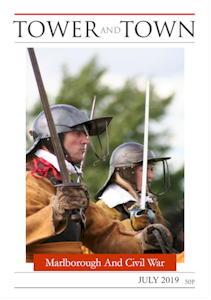

Tower and Town, July 2019 (view the full edition) (view the full edition)A Good ReadFamilies have secrets - sometimes kept from the world, sometimes within the family circle - and secrets will out. In 1929 a small child was kidnapped from a beach in Lincolnshire. Five days later she was found and returned home, and the incident was never spoken of; it was 50 years before that little girl learned of the episode. She grew up to become an artist, and the mother of Laura Cumming who has written On Chapel Sands, in which she teases out the story and discovers at least some of the truth about her mother's family. I began reading thinking 'Oh, OK .... quite interesting...' and quickly became completely engrossed. The author researches the family, neighbours and friends, the life of the village in the 1920s , and what people may have known, and why they kept silent while the kidnapped child grew up among them. Simply as an investigation of the mystery and a portrait of her mother's early life the book would have been absorbing. But as an art critic and historian Laura Cumming also turns her eye to the family photograph album, and the narrative is informed by her interpreting the images, and spotting the gaps and discrepancies, illustrating the complexity, persistence, and sometimes the sadness, of family love. ----*****----
Here's a list of adjectives. Fiery, passionate, romantic, proud and wise, with flashing dark eyes. Also dirty, thieving, surly, untrustworthy and violent, with greasy black curls. Words which have been used to describe Gypsies, and words which romanticise and demonise. Damian Le Bas is public-school and Oxbridge educated, fair-haired and blue-eyed, a writer, journalist and film-maker, and a Romany Gypsy. In The Stopping Places he journeys from Scotland to the South of France, exploring significant sites in Anglo-Romany culture and visiting the historic stopping places used by his family when travelling to fairs or for hop-picking and other seasonal work. While managing to avoid anger or defensiveness, Le Bas is determined to challenge prejudice and unimaginative media representation of Gypsies. His travelogue shows the unromantic reality of the travelling life, and gives some insight into the distinctive culture of his people - however untypical a representative of that culture he may appear to be. Not a new book - The Stopping Places was Radio 4 Book of the Week last year - but if you missed it then, do catch up now. It's intelligent, readable and engaging. Debby Guest |